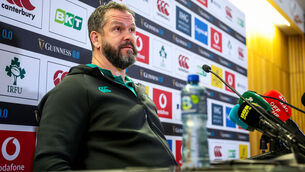IRFU forced into tickets U-turn
Anger had been mounting in clubhouses and committee rooms all over Ireland at being asked by the governing body to sell tickets at inflated prices for four back-to-back Tests, starting with this Saturday’s inaugural rugby international there against South Africa, or face penalties in the form of reduced ticket allocations for the more popular 2011 Six Nations matches.
Facing a deluge of returned tickets and much discontent at the grassroots of the game, the IRFU’s management committee admitted that mistakes had been made.














